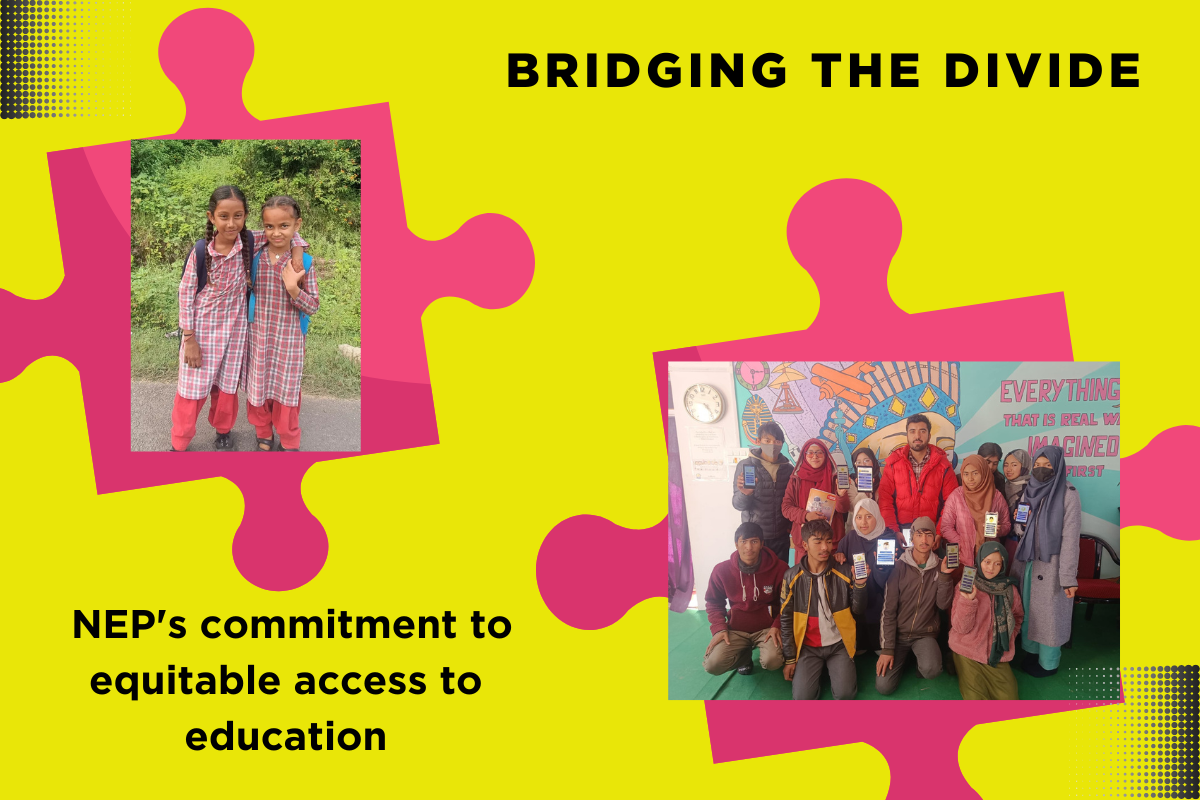Bridging the Divide: NEP's Commitment to Equitable Access to Quality Education
By~ Scholar Planet
Created At: 29 Jul, 2023

Education is the cornerstone of
progress and empowerment, yet millions of individuals around the world still
face barriers in accessing quality learning opportunities. In India, the
National Education Policy (NEP) addresses this pressing issue head-on by laying
out comprehensive strategies to ensure equitable access to education for all,
including marginalized and underprivileged communities. In this article, we
will examine the NEP's initiatives and approaches to bridge the divide and
create a more inclusive and equitable education system.
Recognizing the socio-economic
disparities that hinder access to education, the NEP endeavours to make quality
education accessible to every child, regardless of their background. One of the
key strategies is the promotion of early childhood care and education. By
focusing on early childhood development, the NEP aims to provide a strong
foundation for children from disadvantaged backgrounds, enabling them to be
better prepared for formal schooling and reducing early dropouts.
To ensure that no child is left
behind, the NEP emphasizes the establishment of neighbourhood schools. This
strategy aims to increase the proximity of educational institutions to
students' homes, particularly in rural and remote areas.
Furthermore, the policy
acknowledges the importance of inclusive education. Special emphasis is given
to creating an inclusive and supportive learning environment for children with
disabilities. The NEP encourages the implementation of assistive technology,
specialized teaching methodologies, and a diverse curriculum to accommodate the
unique needs of differently-abled learners, enabling them to participate fully
in the learning process.
Financial constraints often act
as formidable barriers to education, especially for underprivileged families.
The NEP endeavours to alleviate this burden by advocating for increased
investment in public education. Through government funding, scholarships, and
grants, the policy seeks to provide financial aid and incentives to students
from marginalized communities, making education more affordable and accessible.
Another crucial aspect of
equitable access to education is the provision of relevant and culturally
sensitive curriculum. The NEP promotes the integration of local knowledge,
languages, and cultural contexts into the curriculum to enhance students'
engagement and relevance in their learning journey.
Despite the commendable efforts,
the NEP's goal of equitable access to education faces several challenges. The
scarcity of qualified teachers in remote areas remains a significant issue. To
address this, the policy proposes innovative solutions such as virtual teacher
training programs and the use of technology to facilitate remote teaching and
mentoring.
We at Scholar Planet aim to reach
farthest of areas with our virtual learning model. Our dashboards give teachers
all round access to their students learning curve, which keeps them involved
with their overall development.
In conclusion, the National Education Policy's
focus on equitable access to quality education reflects a commitment to
building an inclusive society where every child can fulfil their potential.
Together, we can work towards a future where education truly becomes a
transformative force for every child, regardless of their background,
contributing to a more equitable and prosperous India.
